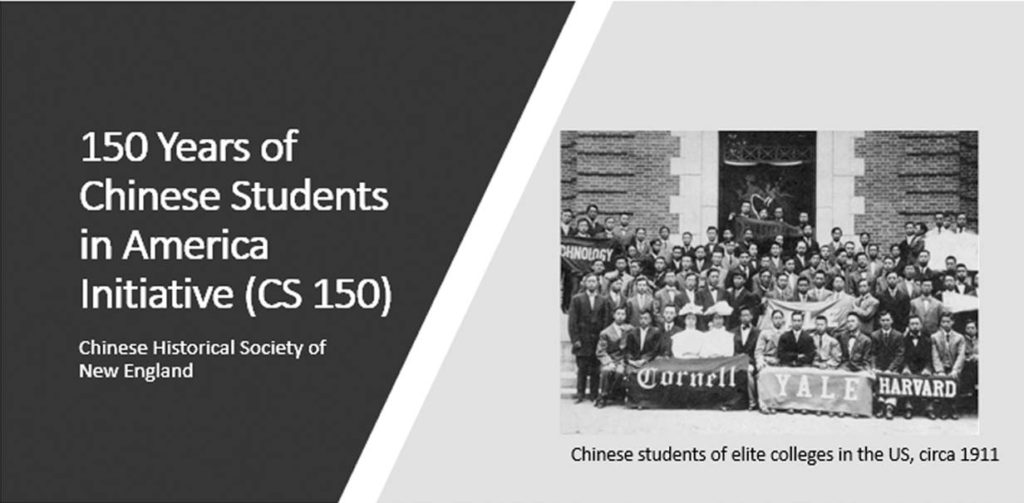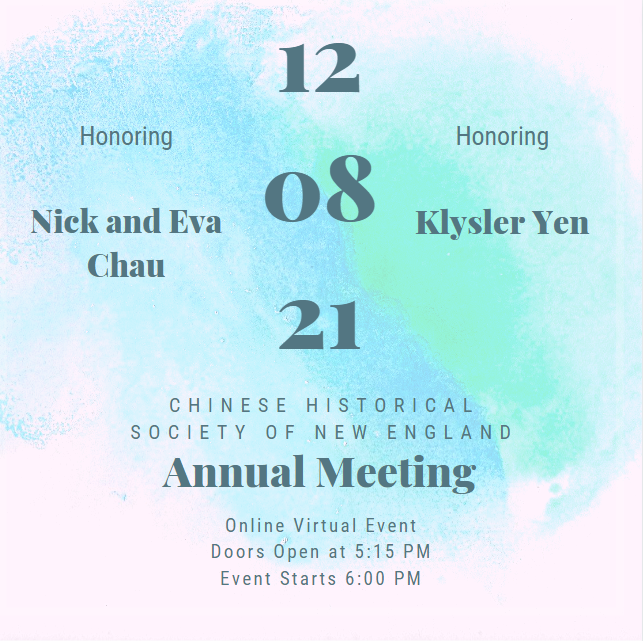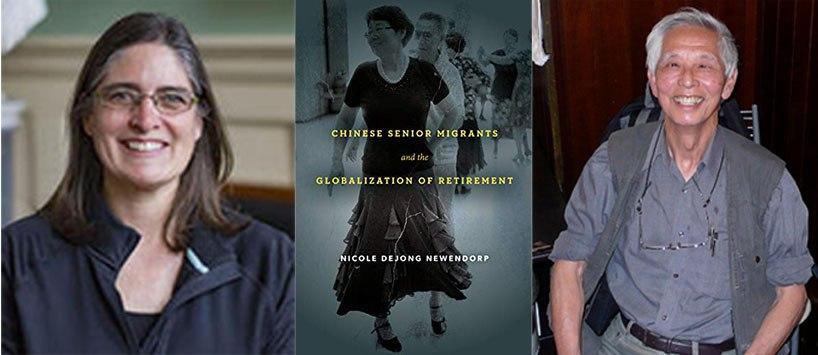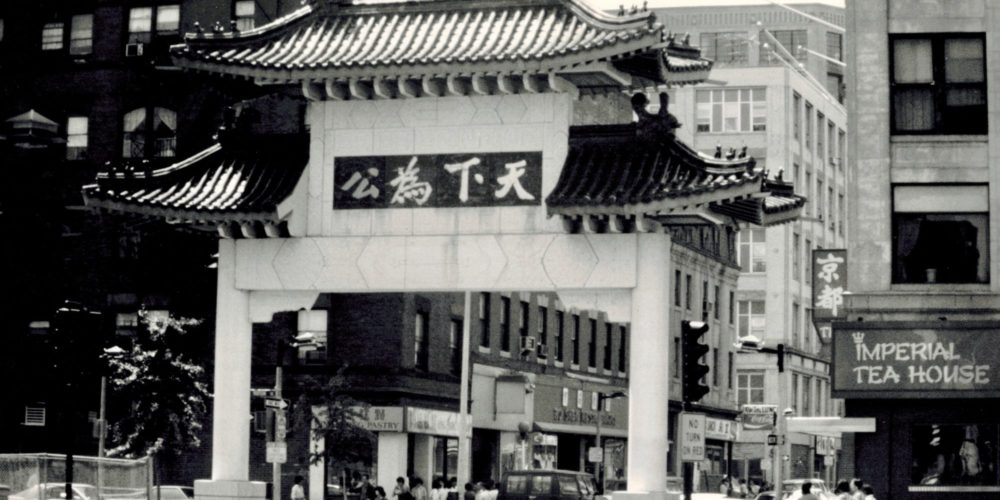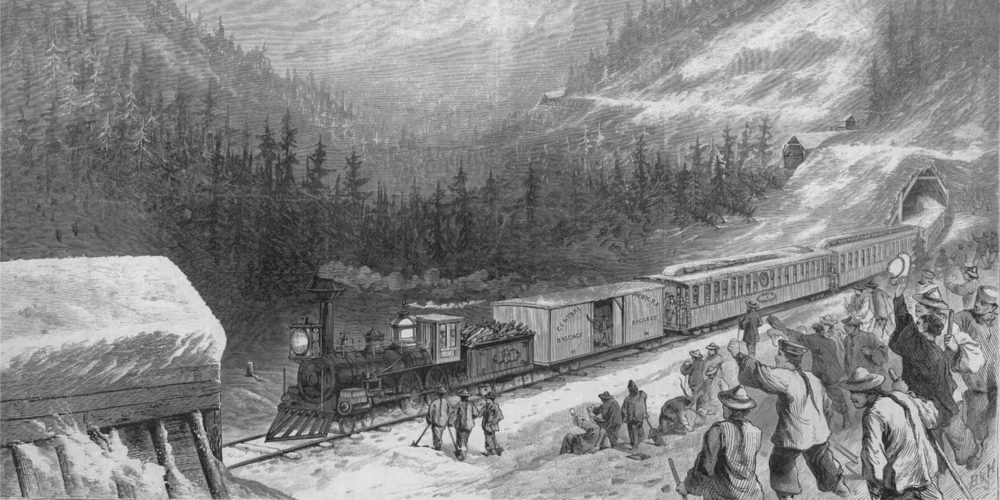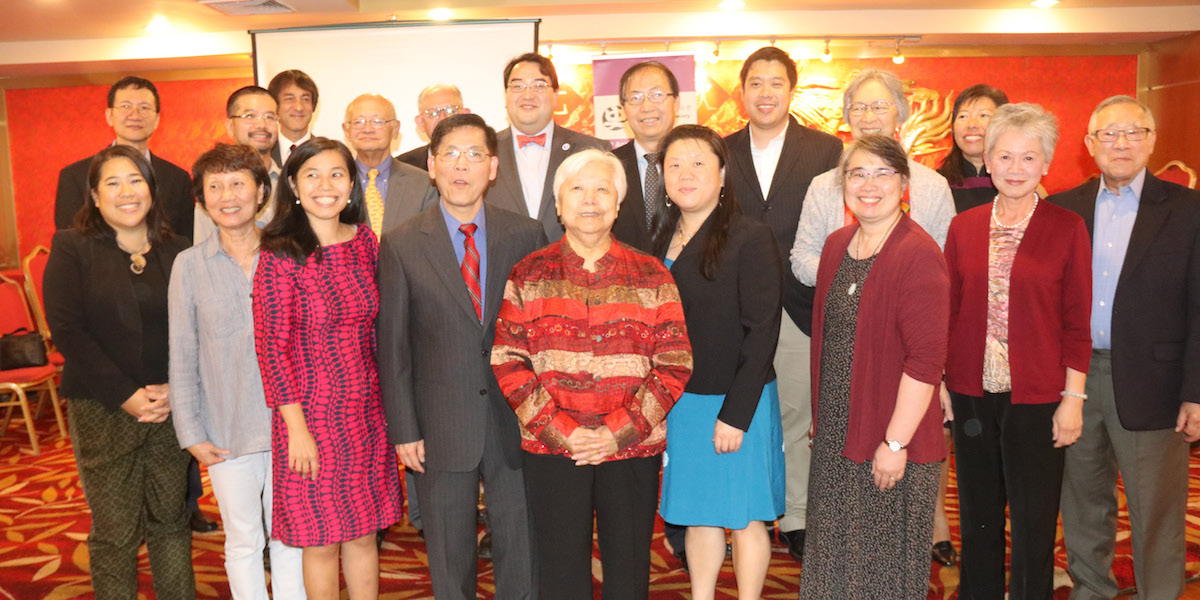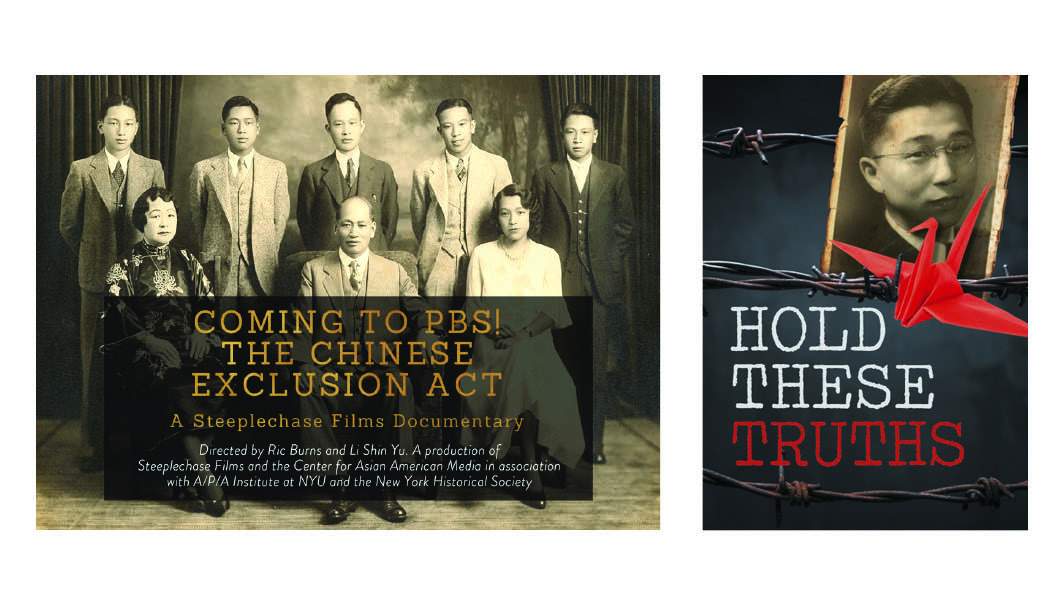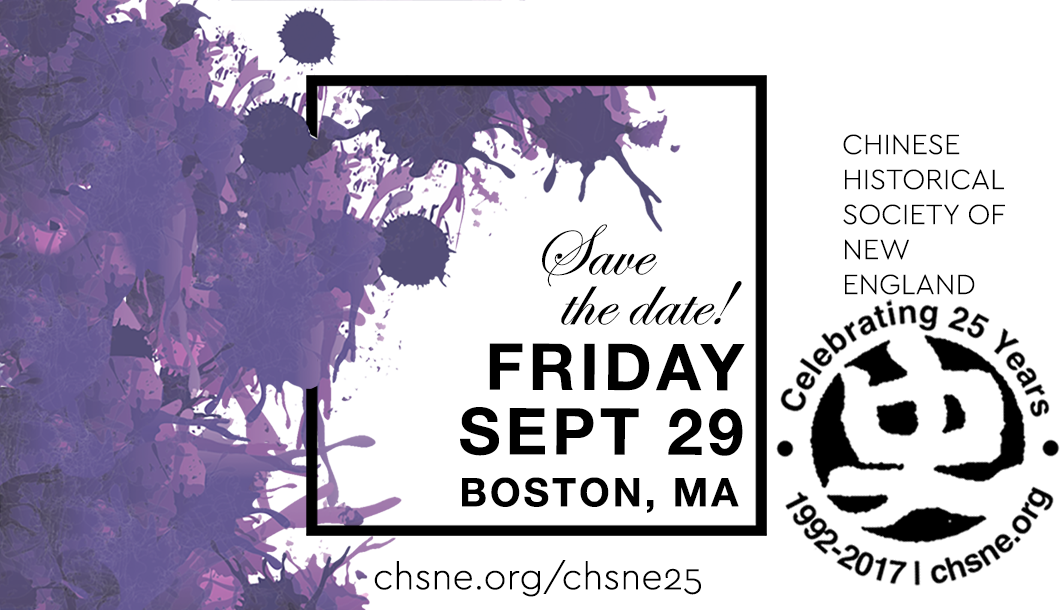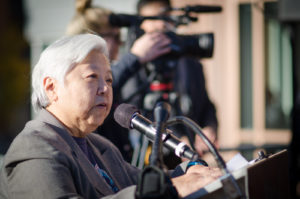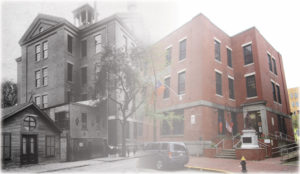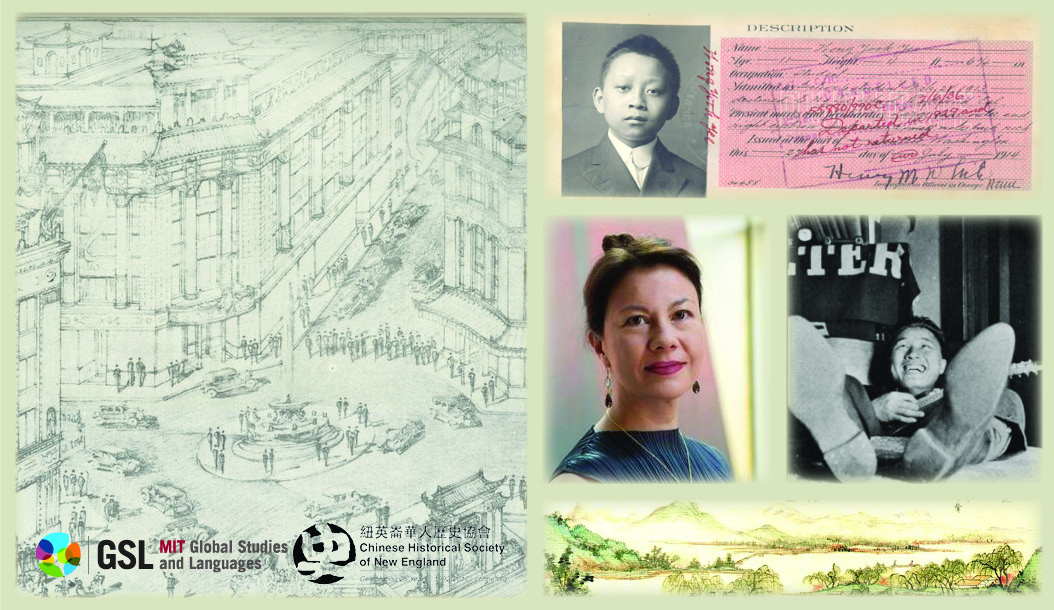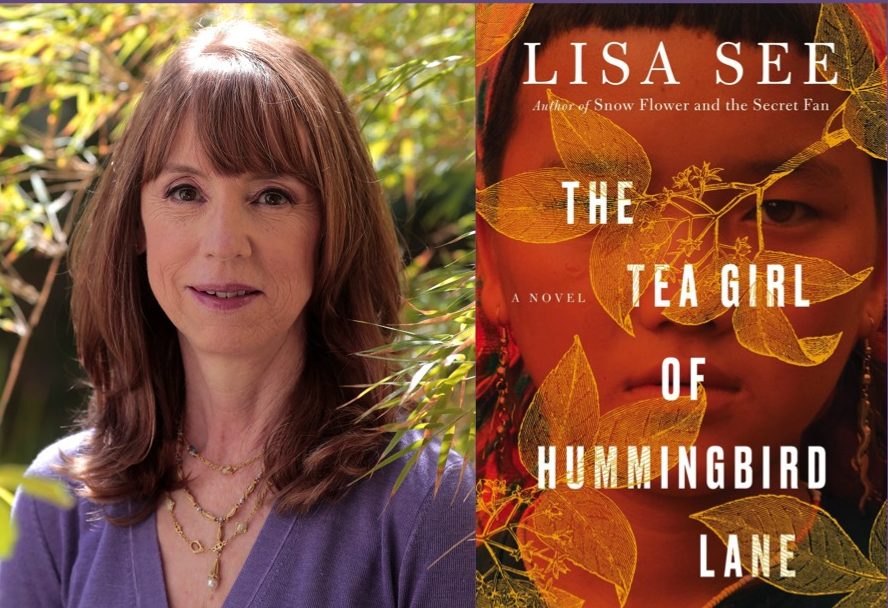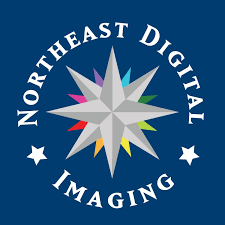
Tunney F. Lee Memorial Lecture Series
Nicole Newendorp
Stories from the City: Contemporary Chinese Senior Migrants and Boston’s Chinatown
Virtual Seminar with Question and Answer Segment
Saturday, September 26, 2:00 PM EST
Zoom virtual event.
Over the past several decades, increasing numbers of Chinese-born senior citizens have left China to migrate to the U.S. for the first time as older adults. For many of these seniors, their recent moves are tied to long histories of emigrant pathways from Guangdong Province to the U.S.—echoing similar kinds of influences that affected Tunney Lee to come to Boston in 1938 when he was 7 years old. In this talk, Nicole Newendorp will take inspiration from Tunney Lee’s belief that to understand a city, it’s necessary to know stories about the people who live there: Who are they? What are their lives like? What’s brought them there? She will focus on the stories she heard while doing 7 years of ethnographic research among seniors who hail from Guangdong Province and have relocated in their 60s and 70s to Boston, where they work in restaurants, as caregivers for children or infirm adults, as janitors and hotel cleaners, and, in a handful of cases, as administrative help in Boston Chinatown offices. Through these stories, Nicole traces the historical pathways that have led to seniors’ later-life migration trajectories and explore the continuities and changes that have animated some typical Chinese immigrant experiences to the U.S. over the past 100+ years.
Transcontinental Railroad 150th Anniversary
Boston’s Chinese community will celebrate the Transcontinental Railroad’s 150th “Golden Spike” Anniversary with a traveling exhibition which tells the story of the Chinese laborers who made up 90% of the Central Pacific Railroad’s workforce. This seven-panel exhibition will on public view at various locations throughout Greater Boston during the months of May and June 2019.
Traveling Exhibition Panels
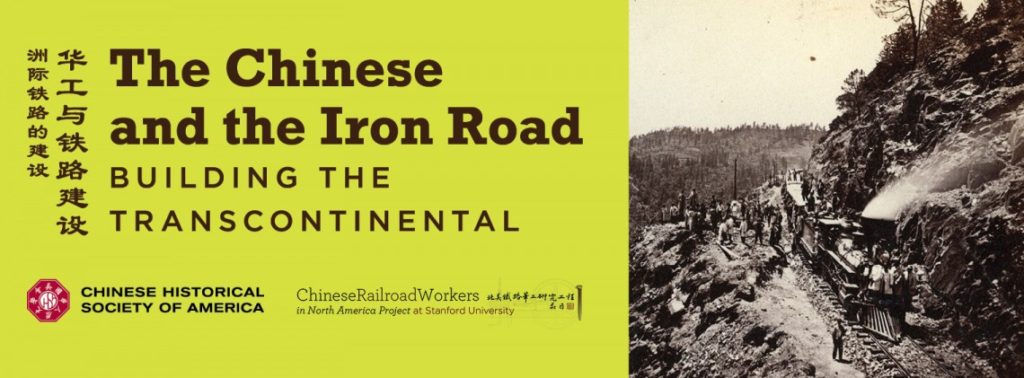

The Chinese and the Iron Road: Building the Transcontinental provides a historical overview of the Chinese railroad workers who were instrumental in building the United States’ first Transcontinental Railroad. Utilizing graphic panels, the exhibit features historical and contemporary photos, illustrations, stories of descendants of the workers, and bilingual Chinese/English text.
Past Events
“Chinese Americans, the Chinese Exclusion Act, and the Ongoing Question of Who Gets to be an American”
Wednesday, June 26th, 7:00 – 8:30
Leominster Public Library | 30 West St, Leominster
Lecture by Fitchburg State University Professor Benjamin Railton
More information
“The Chinese Question in the Afterlife of Slavery”
Wednesday, June 17th, 7:00 – 8:30
Leominster Public Library | 30 West St, Leominster
Lecture by Caroline H. Yang
More information
150th Anniversary of the Transcontiental Railroad
Monday, June 17th, 1:00 – 3:00
Massachusetts State House | 24 Beacon St, Boston
Program by the Asian Community Development Corporation featuring UMass Boston Professor Denise Khor, Trisha Obsequio, Harvard Director of Inclusion Programs Kimberly Truong, and descendants of Chinese railroad workers.
“Debunking Myths About the Chinese Railroad Workers”
Wednesday, June 12th, 3:00 – 4:30
Leominster Public Library | 30 West St, Leominster
Lecture by Richard Cheu
More information
“Being Asian American”
Friday, June 7th, 3:00 – 5:00
Harvard Commons at the Smith Campus Center | 1350 Massachusetts Ave, Cambridge
Interactive Panel Discussion & Commemoration of the 150th Anniversary of the Transcontiental Railroad
More information
“Early Chinese Migrants in Massachusetts”
Wednesday, June 5th, 7:00 – 8:30
Leominster Public Library | 30 West St, Leominster
Lecture by Mount Holyoke Professor Anthony W. Lee
More information
Building Towards the Golden Spike: 150th Anniversary
Saturday, May 18th, 1:00
Paramount Theatre | 599 Washington St, Boston
Screening of Loni Ding’s short documentary “Canton Army in the High Sierras: Chinese Workers Build America’s First Transcontiental Railroad” with lecture by UMass Boston Professor Denise Khor
More information
WGBH Asian/Pacific American Heritage Month Celebration
Thursday, May 9th, 6:00 -9:00
WGBH | 1 Guest St, Boston
Featuring the first-ever Asian American US Cabinet Secretary, Norman Mineta, a dinner reception and a performance by Wah Lum Kung Fu and Tai Chi Academy
Livestream of the panel discussion with Norman Mineta
“Beyond Fortune Cookies: Confronting Asian American Stereotypes”
Wednesday, May 8th, 6:00 – 9:00
Beebe School | 401 Pleasant St, Malden
Join a group of distinguished panelists for a discussion of Asian-American stereotypes and the experience of being Asian American today.
More information
Boston Asian Pacific American Heritage Month Celebration
Tuesday, May 7th, 11:30 – 1:30
Boston City Hall | 1 City Hall Square, Boston
Join Mayor Walsh in celebrating APA Heritage month with live music, cultural activities, and refreshments
More information
Asian American Commission (AAC) Unity Dinner
Friday, May 3rd, 6:00 – 9:30
Crowne Plaza Boston | 15 Middlesex Canal Park, Woburn
More information
Press
“Chinese Workers Remembered at 150th Transcontiental Railroad Ceremony,” Sampan Newspaper, June 18, 2019
“Norman Mineta Reflects on Identity at WGBH,” Sampan Newspaper, May 10, 2019
“Unity Dinner Gathers Asian American Community in New England, ” Sampan Newspaper, May 8, 2019
“Boston’s Chinatown to Honor Transcontinental Railroad Workers,” Sampan Newspaper, May 3, 2019
The Chinese and the Iron Road was organized by the Chinese Historical Society of America (CSHA) and the Chinese Railroad Workers in North America Project at Stanford University.
This program is funded in part by Mass Humanities, which receives support from the Massachusetts Cultural Council and is an affiliate of the National Endowment for the Humanities.
A special thank you to all of the organizations that worked to make these events possible:
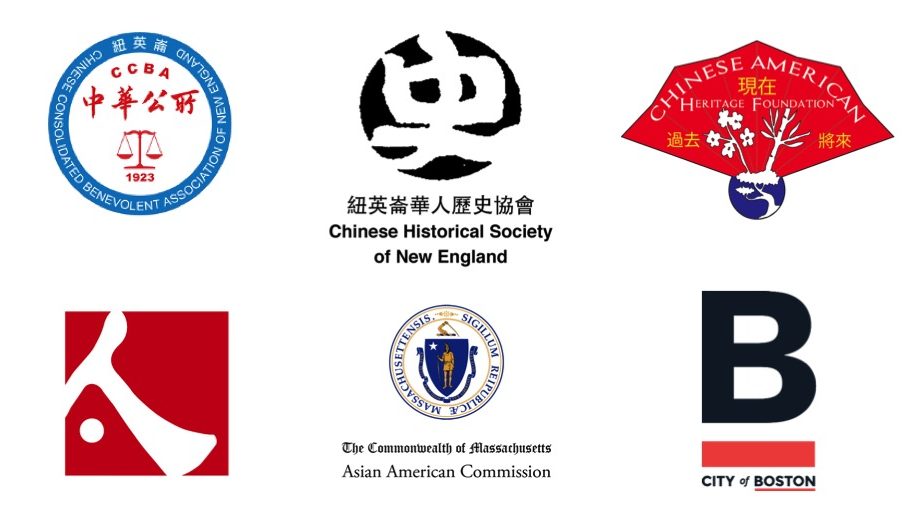

Top image: “Across the Continent. The snow sheds on the Central Pacific Railroad in the Sierra Nevada Mountains. From a sketch by Joesph Becker.” Originally printed in Frank Leslie’s Illustrated Newspaper, Vol. 29, February 6, 1870, p. 346.
Celebrating the Life of Caroline Chang
CHSNE honors the memory of one of our co-founders, Caroline Chang, who passed away on April 21st. Caroline Chang was awarded CHSNE’s Sojourner Award in 2017 for her efforts in representing and preserving the many stories of Boston’s Chinatown.
Caroline Chang grew up in Chinatown, on the historic Hudson Street. Chang dedicated her life to community causes as a founder of CHSNE and as a founding Board Member and President of the Asian Community Development Corporation. She also served as the Manager of Chinatown’s Little City Hall for the Mayor’s Office of Public Service in the 70s, and as Regional Manager for Office for Civil Rights for the US Department of Health and Human Services for over 20 years. You can read more about her life achievements in CHSNE’s 2017 Chronicle.
Caroline’s family has requested that in lieu of flowers, in her memory/honor you may consider donating to community agencies of which she has made ground breaking contributions, including CHSNE.
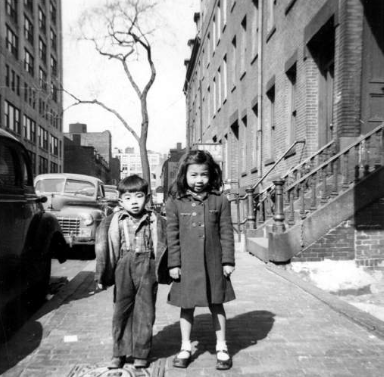

Caroline and brother Reggie play and pose in front of the tenements of Hudson Street in the 1940s.
Memorial Service
Saturday, July 14th, 11:00 a.m.
Josiah Quincy Elementary School Auditorium
885 Washington Street, Boston, MA 02111
Master of Ceremonies/Host:
Peter Chan
Speakers:
Stephen Tang- South Cove Community Health Center
Stuart Graham-U.S. Department of Health Education and Welfare & later Department of Health & Human Services
Paul Lee- Asian American Lawyers Association
Frederick Dow- Harry Dow Foundation
Jacquie Kay- Asian Community Development Corporation
Peter Kiang- Chinese Historical Society of New England
Paul Chan – Life in Chinatown with Caroline
Deanna Wong- Memories of Caroline
After Sharing:
Family invites all to lunch at School Cafeteria
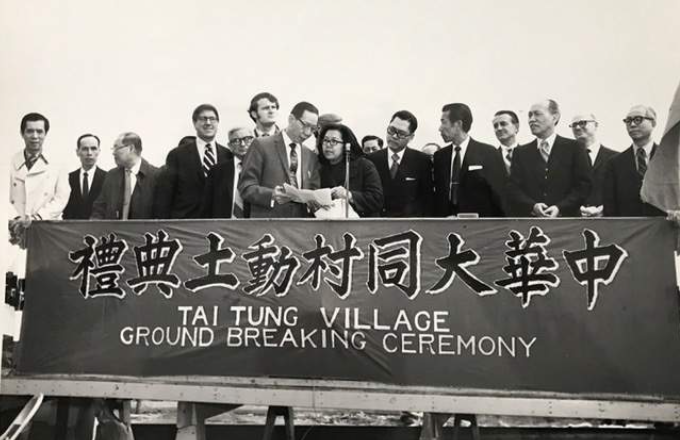

Caroline (center), then 1st woman Secretary of the Chinese Consolidated Benevolent Association of New England at the Ground Breaking Ceremony of Tai Tung Village in the early 1970s.
Who Is American?: Chinese Exclusion, Japanese Internment, and Today
Screening, Reading and Discussion
Thursday, December 7th at 6:30pm
Old South Meeting House, 310 Washington St, Boston, MA 02108
How have politics shaped our perceptions of Americanness throughout U.S. history? And how do today’s conversations on immigration and exclusion compare with political, legal, and cultural scenarios from our past? On the 76th anniversary of the attack on Pearl Harbor, join this dynamic conversation about the ongoing struggle to define who is American. View an excerpt of The Chinese Exclusion Act, a documentary on the United States’ first significant immigration restriction law, passed in 1882. Then hear director Benny Sato Ambush read an excerpt from the acclaimed play Hold These Truths, based on the true story of Japanese-American Gordon Hirabayashi, who resisted internment during WWII. Paul Watanabe, Director of the Institute for Asian American Studies, will remark on connections between Chinese exclusion, Japanese internment, and today’s immigration issues. A panel discussion and community conversation will conclude the event.
Click here to reserve your FREE seats
This program is made possible with support from the Lowell Institute, Tufts Medical Center, and South Cove Community Health Center
Co-presented by CHSNE and Old South Meeting House with support from Lyric Stage Company of Boston, Institute for Asian American Studies at UMass Boston, Japanese American Citizens League-New England, ArtsEmerson, and Boston Asian American Film Festival
CHSNE’s 25th Anniversary Banquet
Friday, September 29th, 6:00-9:00pm
Hei La Moon
88 Beach Street
Boston, Massachusetts
Please join us in celebrating:
Sojourner Awardees
The early Chinese immigrant pioneers were typically sojourners–workers looking for a piece of the Gold Mountain to take back to China to help their families. Many faced conditions of racism, exclusion and economic exploitation, even as they helped build and transform America. Our place today in this society rests, in part, on their legacy. It is in memory of their unrecognized struggles and profound contributions that CHSNE presents the Sojourner Award.
Caroline Chang grew up in Chinatown, on the historic Hudson Street. Chang dedicated her life to community causes as a founder of CHSNE and as a founding Board Member and President of the Asian Community Development Corporation. She also served as the Manager of Chinatown’s Little City Hall for the Mayor’s Office of Public Service in the 70s, and as Regional Manager for Office for Civil Rights for the US Department of Health and Human Services for over 20 years.
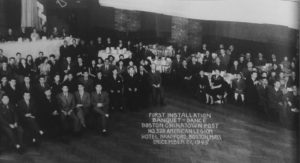

The American Legion formed in 1919 to provide services to veterans, service members and communities, and has evolved from a group of war-weary veterans of World War I into one of the most influential nonprofit groups in the United States. Over the years, the Legion has influenced considerable social change in America, won hundreds of benefits for veterans and produced many important programs for children and youth. Post 328 members are mindful of the American Legion creed of “For God and Country” and continue to uphold its tradition for the love of duty, honor, God, country, and community.
With special presentations on:
CHSNE partnered with Massachusetts Historical Commission (MHC) and the Chinese Consolidated Benevolent Association of New England (CCBA) to register the first site for its connection to Chinese in Boston to the National Register of Historic Places. Over the past year, consultants wrote the nomination for CCBA’s Old Quincy School building, and an overview document about the Chinese in Boston. These two documents are now public record, allowing future researchers/generations the opportunity to know about the experience of our ancestors and community.
The Boston Chinatown Atlas is a collaborative project led by MIT Professor Emeritus Tunney Lee, in collaboration with CHSNE and many community members, students, and organizations. The project documents and explores Chinatown’s growth and change through time as told by personal stories, photos, maps, and interactive features on the website.
Please consider sponsoring CHSNE’s 25th anniversary banquet or purchasing a greeting in the program book. Click here for sponsor information.
25th Anniversary Sponsors
2017 Banquet Sponsors
Gold Sponsor
John & Stephanie Fan
Silver Sponsor
Eastern Bank
Bronze Sponsors
Cambridge Savings Bank
Peter & Laura Chan
Thomas & May Chin
Karyn Wong Ching
Paul Lee
Peter Ng
Table Hosts
American Legion Boston Chinatown – Post 328
Bridgewater State University
Caroline Chang
Helen Chin Schlichte
Chinese Consolidated Benevolent Association of New England
Selina Chow
Stephanie Fan
Gee How Oak Tin Association of New England
South Cove Manor
Suffolk University
Banquet Panning Committee
Jessica Wong Camhi
Carmen Chan
Susan Chinsen
Sherry Dong
Stephanie Fan
Christine Nguyen
Peter Tam
Nancy Wong
Yolanda Zhang
Education and Exclusion: A Lecture and Gallery Visit with Professor Emma Teng
Thursday, May 25, 5:15pm-7:00pm
5:15pm Refreshments & Gallery Viewing | 6:15pm Lecture
Maihaugen Gallery | Hayden Memorial Library, 160 Memorial Drive, Cambridge 02139
Reserve your free tickets today
The history of Chinese students at MIT dates back to 1877. From these beginnings, the Institute became one of the most popular destinations for Chinese overseas students, especially those seeking to contribute to their country’s modernization through engineering, science, and commerce. Between 1854 and 1954, MIT awarded 734 degrees to Chinese students, the third highest number of any American university. This lecture and exhibition will offer insight into local history, immigration trends, and lessons from a previous generation.
To commemorate the 135th anniversary of the Chinese Exclusion Act of 1882 and in conjunction with her exhibition China Comes to Tech: 1877-1931, Professor Emma Teng will address the impact of the Exclusion laws, and the xenophobia that they represented, on students from China, using MIT as a case study.
Emma J. Teng is the T.T. and Wei Fong Chao Professor of Asian Civilizations at MIT. She teaches courses in Chinese culture, Chinese migration history, Asian American history, East Asian culture, and women’s and gender studies.
Co-hosted by the Chinese Historical Society of New England (CHSNE) and MIT Global Studies and Languages. With support from CHSNE’s 25th Anniversary Sponsors: Tufts Medical Center, National Park Service, and South Cove Community Health Center.
Author Event with Lisa See
Author Lisa See
The Tea Girl of Hummingbird Lane
Book talk, signing, & reception
Tuesday, March 28, 12:00pm-1:30pm
One Chinatown Arts Center | 99 Albany St, Boston 02111
In partnership with the Boston Chinatown Neighborhood Center (BCNC), CHSNE will present a lunchtime conversation with #1 New York Times bestselling author Lisa See on her new novel, The Tea Girl of Hummingbird Lane. A powerful story about two women separated by circumstance, culture, and distance, The Tea Girl of Hummingbird Lane is an unforgettable portrait of a little known region and its people and a celebration of the bonds of family.
Buy tickets here!
Ticket information coming soon!

